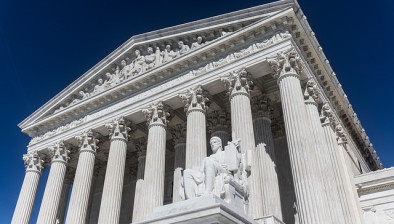High Court: Judge critical of ‘overly meticulous approach’ to legal costs hearings

The High Court has ruled that successful plaintiffs in a circuit appeal were entitled to the full legal costs of the hearing and rejected taking an “overly meticulous approach” to legal costs. The defendants had argued that the plaintiffs were not entitled to their legal costs because they had not been successful on an allegation of forgery in the case.

About this case:
- Citation:[2023] IEHC 434
- Judgment:
- Court:High Court
- Judge:Mr Justice Michael Twomey
Delivering judgment in the matter, Mr Justice Michael Twomey held that the case was only concerned with the legal right of the second plaintiff to an inheritance, which was determined in his favour. The court held that it would not engage in a precise calculation of legal costs and that, when considering the “big picture”, the plaintiffs were entitled to their full costs.
Background
The case came before the High Court as a circuit appeal. In summary, the matter related to a dispute over the second plaintiff’s entitlement of a half share of a family farm. The defendants, representing the estate of the second plaintiff’s father, claimed that a “release” had previously been signed by the second plaintiff as a young man which disentitled him to the share in the farm.
Specifically, it was said that the release was a disclaimer to the half share of the farm in favour of his father, from whom he was estranged. As part of the pleaded case, the son claimed that his signature was a forgery, although he primarily claimed it was void and of no legal effect. In the substantive action, the court did not accept that the signature was forged but determined that the release was of no legal effect.
In the subsequent costs hearing, the defendant sought to argue that the plaintiffs were not entitled to their full costs because they had not won the forgery issue. The defendants also sought declarations from the court post-judgment in relation to the release, including that the signature was not forged.
High Court
Mr Justice Twomey began by outlining that the Supreme Court had previously warned against the counterproductive nature of an “overly meticulous approach” to legal costs (see Connelly v. An Bord Pleanála [2018] IESC 36). The court also noted the Supreme Court’s concern in Connelly that a costs hearing took “over an hour”.
It was clear from Connelly that in most cases, the winners and losers were obvious and as such a costs hearing should only take a few minutes, the court said.
In the present case, the costs hearing took two hours. The substantive trial had taken two-and-a-half days of court time, meaning that an additional 20 percent of time was added to facilitate the submissions on costs.
In dealing with the declaratory reliefs sought by the defendants at the costs hearing, the court noted that these were matters that were never part of a counterclaim. It was difficult to avoid the conclusion that the declarations were sought in order to bolster the application for costs on the forgery point, the court said. However, the declarations made no difference to the core issue, which was ownership of the farm.
As such, the court declined to make the declarations as sought. It was not possible to insert such orders into the final court order which had already been made.
In respect of the argument that there should be no order as to costs because the defendants won the forgery point, the court said this was “removed from reality”. The court noted that it had not accepted there was forgery in the case, but that the release was “unlikely to be understood by the son”, and was not dated, witnesses, sealed or stamped. It also appeared nowhere on the solicitor’s file.
Accordingly, the release did not get a “clean bill of health” from the court. It was also clear the son’s concerns about the forgery were “not completely misplaced” as it was a “most curious of documents”.
It was very clear that the son was the winner of the claim since he was successful in arguing that he was entitled to a half share of the farm. The court referred to Cork County Council v. Minister for Housing [2022] IEHC 473, in which it was outlined that it was undesirable to adopt a “micro-specific approach” to costs hearings which would encourage additional litigation costs.
It was also stated that it would “rarely be appropriate to attempt either a very precise calculation of the extent to which costs may have been increased or, indeed, an overly meticulous approach to identifying the precise issues or variations on issues, which were canvassed” (see Cork County Council case).
While no criticism was made against the lawyers for the defendants, the application for no order as to costs ignored the reality of the court’s ruling. The court noted that the forgery claim was an alternative claim made by the son and was not pressed at the hearing. In fact, the plaintiffs adduced handwriting evidence which established that it was his signature on the document.
While the forgery claim was not withdrawn, it was not the focus of the claim. Finally, the court held that the son’s concerns about how his signature ended up on the release were justified. It was possible that the son had signed a blank document or a document he did not understand, the court said.
Conclusion
In the circumstances, the court was satisfied that the plaintiffs were entirely successful in the case and were entitled to their full costs.
Egan v. Egan [2023] IEHC 434










